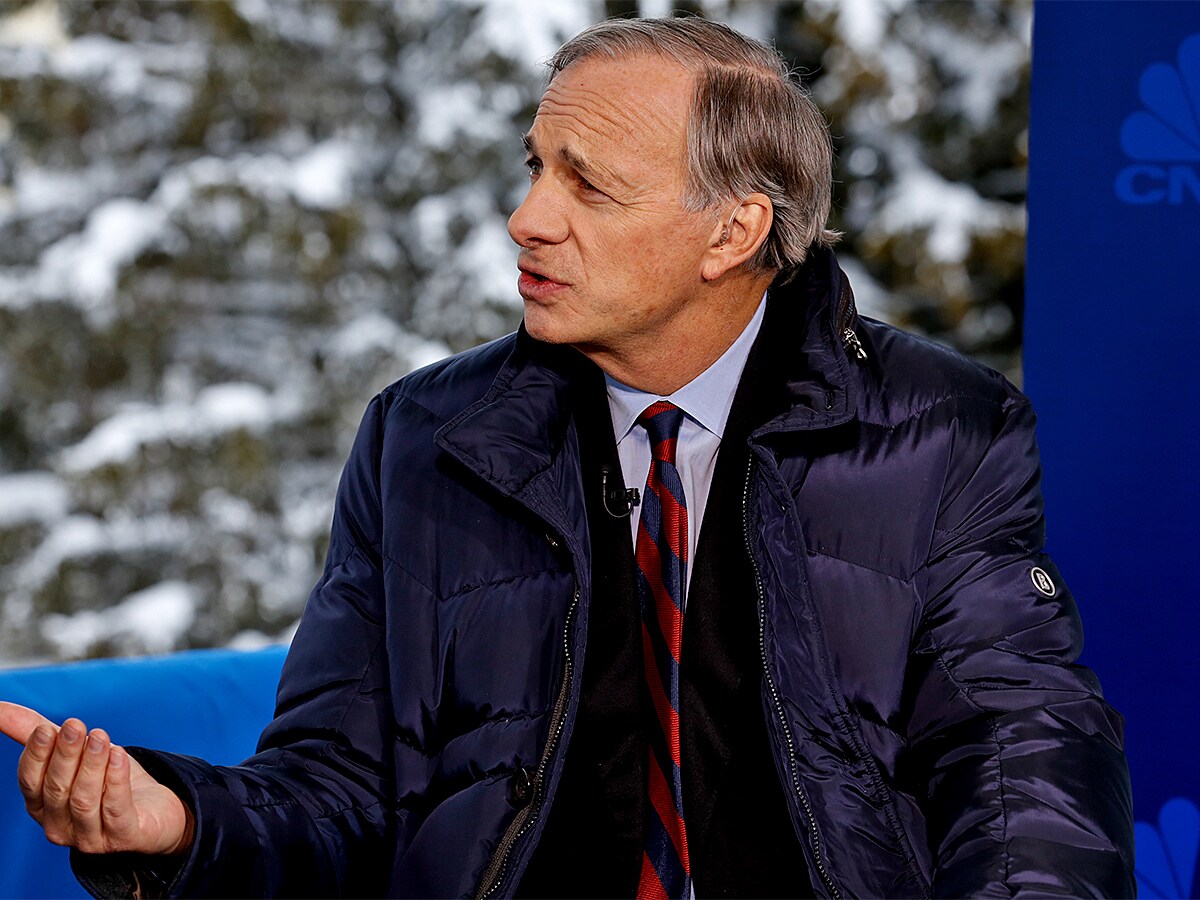Ray Dalio (pictured above) — founder of Bridgewater Associates, the world’s biggest hedge fund — has issued a warning in response to the US Federal Reserve’s announcement that it could slow asset purchases and increase interest rates sooner than investors had expected.
Dalio drew attention to the erratic response of markets when the Fed made the announcement a week earlier on 16 June. During the week, the yield curve flattened sufficiently, the price of the dollar surged, and equities were sluggish. As a result, Dalio said that “monetary inflation” could become overheated, thanks to a flood of bond issuances.
With the US deficit increasing, the government has had to sell large quantities of bonds. However, very low interest rates and negative real inflation rates make government bonds an unattractive proposition to potential bond investors, especially given the increasing appeal of capital markets (particularly China’s).
The billionaire investor highlighted the potential issue this could cause, saying: “That creates a supply/demand issue that can create monetary inflation because there will not be enough demand to buy those bonds.”
“That means it’s likely the Federal Reserve will not be able to taper or cut back [asset purchases], it might actually have to increase to prevent interest rates from going up and that’s a classic monetary inflation” - Ray Dalio
He added: “That means it’s likely the Federal Reserve will not be able to taper or cut back [asset purchases], it might actually have to increase to prevent interest rates from going up and that’s a classic monetary inflation.”
Dalio made the comments on 21 June at the Qatar Economic Forum, where he discussed the effects of the Fed’s signalling with former US Treasury Secretary Lawrence Summers.
Easy money
Since the outbreak of the coronavirus pandemic, the Fed has engaged in a large-scale asset purchasing programme of US government, also known as quantitative easing (QE), to stimulate the economy. The Fed has been buying $120bn of such assets monthly, and the assets on its balance sheet recently topped $8trn for the first time.
On 16 June, the Fed’s Open Market Committee raised its headline inflation expectation to 3.4%, a percentage point above the equivalent figure from its meeting three months previously. Individual member expectations indicated there would likely be two increases in interest rates in 2023 in order to temper this inflationary effect.
Kathy Jones, head of fixed income at Charles Schwab, told CNBC: “If you’re going to get two rate hikes in 2023, you have to start tapering fairly soon to reach that goal.”
“If you’re going to get two rate hikes in 2023, you have to start tapering fairly soon to reach that goal” - Kathy Jones, head of fixed income at Charles Schwab
Dalio’s comments highlight the challenge for the Fed. With US government borrowing at record high levels, investors’ portfolios are already overweight in the very assets that the Fed hopes to stop buying from the open market. However, the government still needs to sell these bonds in order to fund its spending, so there may be insufficient demand for bonds to meet US government supply.
In that instance, according to Dalio, tapering wouldn’t be an effective means of controlling inflation. Interest rates would have to rise further, meaning QE would need to be expanded in order to keep rates under control.
Growth stock gains
The impact of the Fed’s announcement on securities markets has, so far, been mixed. Equities suffered a temporary fall, as rising interest rates (and, in this case, even the prospect of them) typically have a negative impact on stock markets. Growth stocks, however, overperformed, and the S&P 500 has rebounded swiftly.
Between 15 June and 18 June, the S&P 500 fell 1.9% from $4,246.59 to $4,166.45, but then regained 3.1% to $4,297.50 on 30 June, its highest-ever close. The SPDR Portfolio S&P 500 Growth ETF [SPYG], which tracks the S&P 500 Growth Index and is, therefore, an indicator of the performance of growth stocks in the US stock market, outperformed the S&P 500 as a whole during the period. Between close on 15 June and 18 June, it fell just 0.1%, then gained 3.7% by close on 30 June. Its top holding, Apple [AAPL], saw its share price increase 5.5% between 15 June and 30 June.
However, some argue that the S&P 500’s strong run, which has lasted over a decade since the financial crisis of 2007-2008, has been largely down to the Fed’s programme of QE, which has effectively injected more cash into the US economy than many banks know what to do with. Dalio’s comments raise the question of how the US limits the inflationary effect of this new cash without stymying the stock market’s performance.
His comments primarily referenced the supply/demand imbalance in the bond market. While separate from the stock market, the higher bond yields implied by the Fed’s tapering typically lead to lower stock prices.
Disclaimer Past performance is not a reliable indicator of future results.
CMC Markets is an execution-only service provider. The material (whether or not it states any opinions) is for general information purposes only, and does not take into account your personal circumstances or objectives. Nothing in this material is (or should be considered to be) financial, investment or other advice on which reliance should be placed. No opinion given in the material constitutes a recommendation by CMC Markets or the author that any particular investment, security, transaction or investment strategy is suitable for any specific person.
The material has not been prepared in accordance with legal requirements designed to promote the independence of investment research. Although we are not specifically prevented from dealing before providing this material, we do not seek to take advantage of the material prior to its dissemination.
CMC Markets does not endorse or offer opinion on the trading strategies used by the author. Their trading strategies do not guarantee any return and CMC Markets shall not be held responsible for any loss that you may incur, either directly or indirectly, arising from any investment based on any information contained herein.
*Tax treatment depends on individual circumstances and can change or may differ in a jurisdiction other than the UK.
Continue reading for FREE
- Includes free newsletter updates, unsubscribe anytime. Privacy policy





